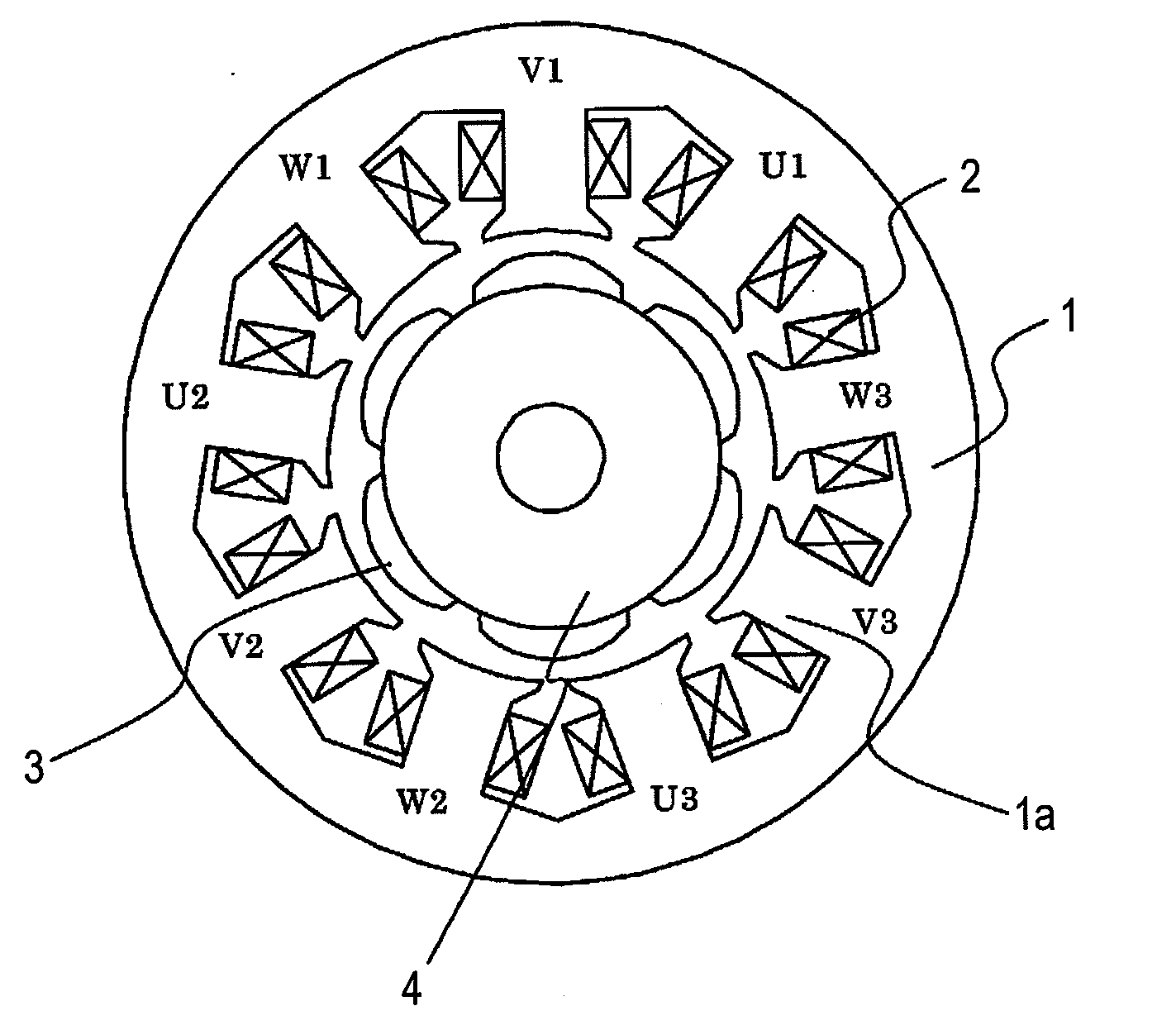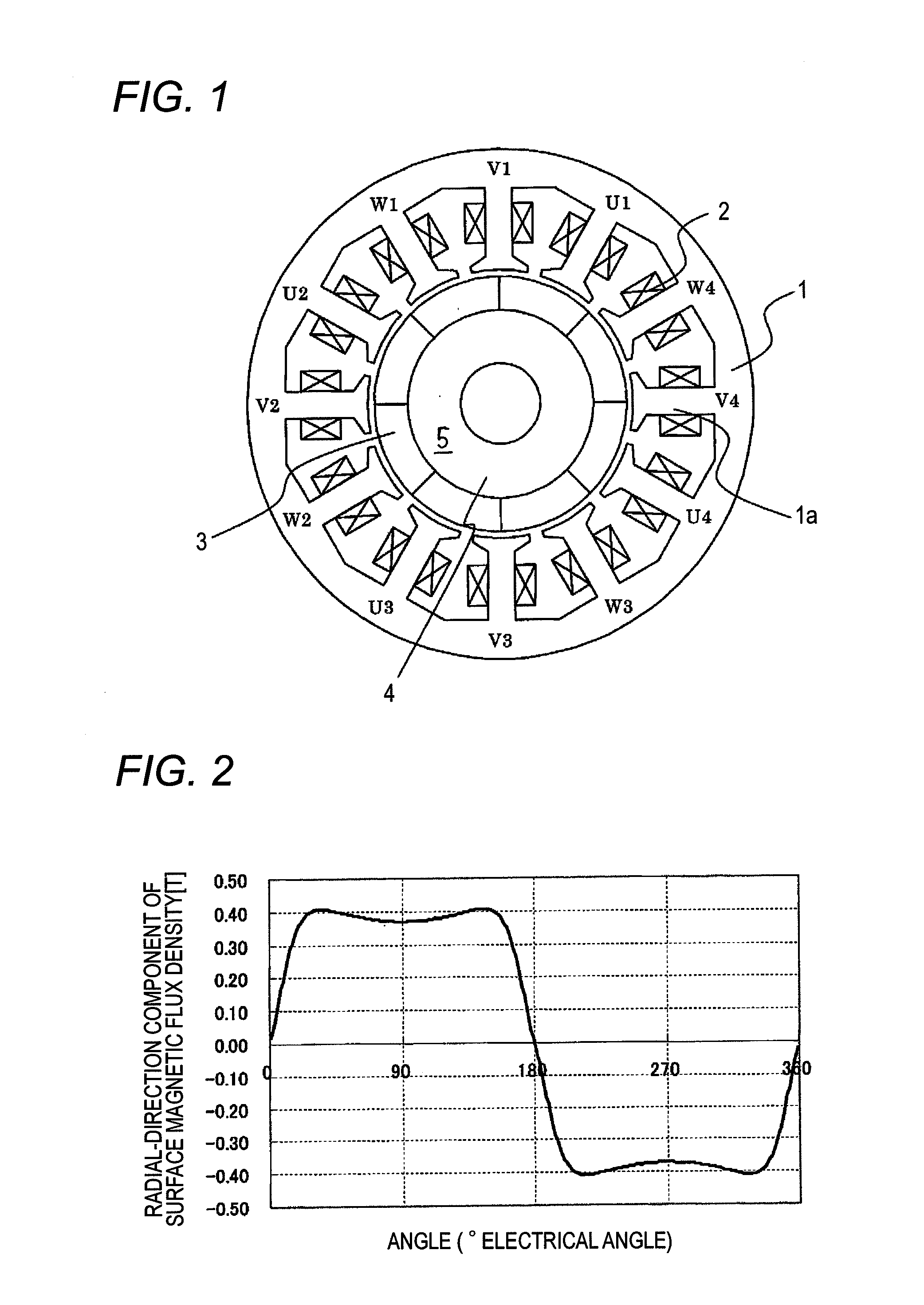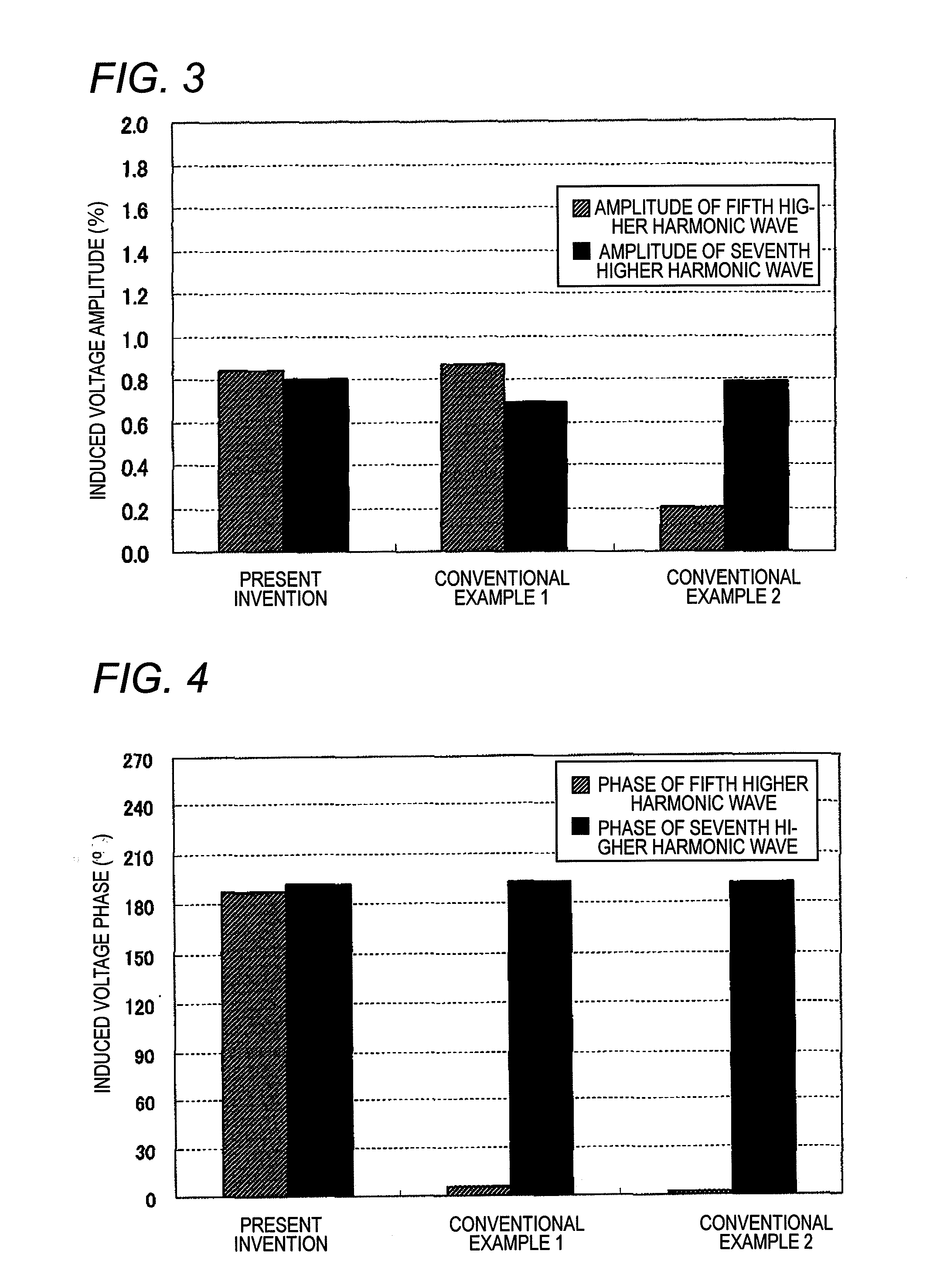Permanent-magnetic type rotary electric machine
- Summary
- Abstract
- Description
- Claims
- Application Information
AI Technical Summary
Benefits of technology
Problems solved by technology
Method used
Image
Examples
first embodiment
[0034]FIG. 1 is a cross-sectional view showing a permanent-magnetic type rotary electric machine to be implemented in the present invention. A stator iron core 1 is constructed by laminating electromagnetic steel plates, and teeth 1a projecting radially from the annular iron core are arranged on the annular iron core at an equal interval. In FIG. 1, the number of teeth is set to 12. Furthermore, an armature winding 2 is wound around each tooth 1a.
[0035]The armature winding 2 comprises three-phase windings, and when these windings are defined as U-phase, V-phase and W-phase, the arrangement of the armature winding is set like U1, V1, W1, U2, V2, W2, U3, V3, W3, U4, V4 and W4 as indicated at the roots of the teeth 1a of FIG. 1. Here, the alphabets represent the respective phases, and the numerals are expediently allocated to discriminate the armature windings whose arrangements are different although they have the same phase. U1, U2, U3, U4 may be connected to one another in parallel...
second embodiment
[0055]In the first embodiment, the present invention is applied to the motor in which the number of poles is set to 8 and the number of teeth, that is, the number of slots is set to 12. In the second embodiment, the present invention is likewise applied to other examples. FIG. 11 shows an example in which the present invention is applied to a motor having six poles and nine slots, FIG. 12 shows an example in which the present invention is applied to a motor having ten poles and 12 slots, and FIG. 13 shows an example in which the present invention is applied to a motor having 14 poles and 12 slots.
[0056]FIG. 11 shows the motor having six poles and nine slots. With respect to a permanent-magnetic type rotary electric machine in which the relationship between the pole number m of the magnet and the slot number n of the stator satisfies 2:3 as in the case of the motor shown in FIG. 11, it trends to have a large magnetomotive force higher harmonic based on the armature winding and large ...
third embodiment
[0060]In the first and second embodiments, the ring-shaped magnet is subjected to skew in order to vary the amplitude and phase of the higher harmonic waves. However, the amplitude and phase of the higher harmonic waves can be also varied by changing the sectional shape of the segment magnet. For example, “hog-backed shape” in which the thickness at the edge portion in the peripheral direction is set to be smaller than the thickness at the center portion in the peripheral direction may be considered. However, if the shape of the magnet is changed, the torque is reduced by the amount corresponding to the reduced thickness at the edge portion, and thus the ring-shaped magnet having a constant thickness has higher torque.
[0061]FIGS. 14 and 15 show an example of a rotor according to a third embodiment in which the sectional shape of the permanent magnet is set to the hog-backed shape. Permanent magnets 3 each of which has a so-called hog-backed sectional shape in which the thickness at ...
PUM
 Login to View More
Login to View More Abstract
Description
Claims
Application Information
 Login to View More
Login to View More - R&D
- Intellectual Property
- Life Sciences
- Materials
- Tech Scout
- Unparalleled Data Quality
- Higher Quality Content
- 60% Fewer Hallucinations
Browse by: Latest US Patents, China's latest patents, Technical Efficacy Thesaurus, Application Domain, Technology Topic, Popular Technical Reports.
© 2025 PatSnap. All rights reserved.Legal|Privacy policy|Modern Slavery Act Transparency Statement|Sitemap|About US| Contact US: help@patsnap.com



